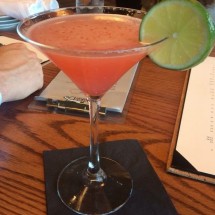Law Offices of John P. Connell, P.C.: Hosting an open bar can be a great way to revitalize a stagnant restaurant business or entice partygoers to celebrate the New Year, but for liquor licensees it presents pitfalls and potential liability unless proper measures are implemented to ensure compliance with the Alcoholic Beverages Control Commission’s (“ABCC”) controlling regulations. The ABCC has previously issued an advisory related to “Happy Hour” and “Open Bar” regulations detailing certain activities holders of M.G.L. c. 138, § 12 licenses, such as restaurants, are prohibited from offering, which remains very helpful. See Commission Advisory and Guidelines, issued November 23, 2009 and codified in the Code of Massachusetts Regulations, 204 Mass. Code Regs. 4.00, et seq. These prohibited activities include providing free or reduced priced drinks, selling more than two drinks to one individual at one time or offering unlimited drinks for a period of time at a fixed price.
The ABCC carved out certain guidelines that allow licensees to host “private functions” for an identifiable group of people, essentially operating as an open bar. Namely, the open bar must qualify as a private event, restricting access only to invited guests who are not charged a direct or indirect fee and a list of said guests must exist for inspection if necessary. Additionally, a host must be designated, be the sole individual responsible for payment to the licensee and the function must remain private without public advertisement.
In its application the ABCC has issued a violation where the licensee hosted a promotional event charging $5.00 for entrance entitling the patron to unlimited drinks on Thursday nights between 10PM and 11PM. The licensee claimed the event was “private” and not open to the public, evidenced by a list of invited guests through a posting on a Boston College Facebook website. The ABCC did not agree, stating the list contained more names than permitted inside the premises at any given time based on the Certificate of Use and Occupancy and, more importantly, the Facebook site itself is a “public” medium since many people have access to it. In Re Painted House, LLC d/b/a The Wonder Bar, Boston (ABCC Decision dated April 15, 2009).
ABCC officials and police officers employ a number of methods to enforce the regulations of alcoholic beverages, often monitoring websites such as Facebook and Eventbrite and conducting unannounced site checks of bars or restaurants. Therefore, licensees must be careful to understand and adhere to the regulations when hosting an open bar so not to incur violations that could suspend or even terminate the use of their license.
-Robert J. McGovern, Esq.

